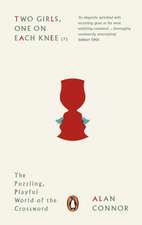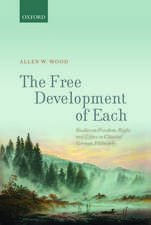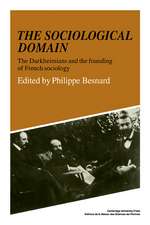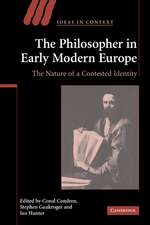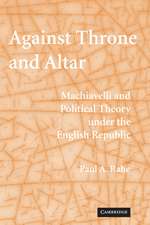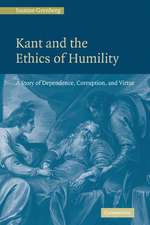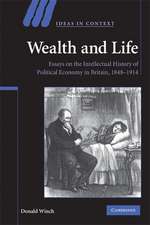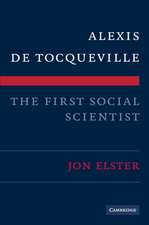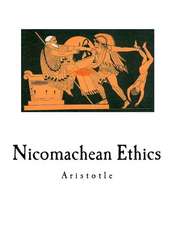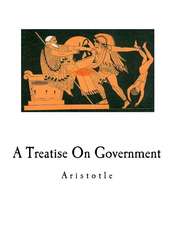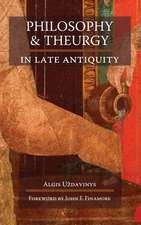Aristotle: The Growth and Structure of his Thought
Autor Aristotle Editat de G. E. R. Lloyden Limba Engleză Paperback – 30 iun 1968
| Toate formatele și edițiile | Preț | Express |
|---|---|---|
| Paperback (4) | 140.39 lei 3-5 săpt. | +17.45 lei 10-14 zile |
| Cambridge University Press – 2 oct 1996 | 140.39 lei 3-5 săpt. | +17.45 lei 10-14 zile |
| Cambridge University Press – 19 noi 2014 | 162.04 lei 3-5 săpt. | +13.94 lei 10-14 zile |
| Hackett Publishing Company – 31 aug 1995 | 209.23 lei 3-5 săpt. | +68.58 lei 10-14 zile |
| Cambridge University Press – 30 iun 1968 | 235.03 lei 6-8 săpt. | |
| Hardback (2) | 443.19 lei 6-8 săpt. | |
| Cambridge University Press – 2 oct 1996 | 443.19 lei 6-8 săpt. | |
| Cambridge University Press – 19 noi 2014 | 465.32 lei 6-8 săpt. |
Preț: 235.03 lei
Nou
Puncte Express: 353
Preț estimativ în valută:
44.97€ • 47.08$ • 37.21£
44.97€ • 47.08$ • 37.21£
Carte tipărită la comandă
Livrare economică 05-19 aprilie
Preluare comenzi: 021 569.72.76
Specificații
ISBN-13: 9780521094566
ISBN-10: 0521094569
Pagini: 340
Dimensiuni: 127 x 203 x 19 mm
Greutate: 0.37 kg
Editura: Cambridge University Press
Colecția Cambridge University Press
Locul publicării:Cambridge, United Kingdom
ISBN-10: 0521094569
Pagini: 340
Dimensiuni: 127 x 203 x 19 mm
Greutate: 0.37 kg
Editura: Cambridge University Press
Colecția Cambridge University Press
Locul publicării:Cambridge, United Kingdom
Cuprins
Preface; Abbreviations; Part I. Intellectual Development: 1. Life and writings; 2. The pupil of Plato; 3. The critic of Plato; 4. The philosopher of nature; 5. The founder of systematic research; Part II. Fundamentals of Aristotle's Thought: 6. Logic and metaphysics; 7. The physics of the heavenly region; 8. The physics of the sublunary region; 9. Psychology; 10. Ethics; 11. Politics; 12. Literary criticism; 13. Conclusion; Suggestions for further reading; Glossary of Greek terms; Index of passages referred to; General index.
Descriere
This is a concise and lucid account of the work of Aristotle.
Recenzii
Praise for the first edition: 'A teacher looking for a single translation of the Nicomachean Ethics to use as a textbook, and a general reader who wishes to rely on a single translation of this work, will do well to choose Crisp.' Utilitas
Notă biografică
Aristotle (Greek: ¿¿¿¿¿¿¿¿¿¿¿ Aristotél¿s, pronounced [aristotél¿¿s]; 384-322 BC)[A] was a Greek philosopher and polymath during the Classical period in Ancient Greece. Taught by Plato, he was the founder of the Lyceum, the Peripatetic school of philosophy, and the Aristotelian tradition. His writings cover many subjects. including physics, biology, zoology, metaphysics, logic, ethics, estheticspoetry, theatre, music, rhetoric, psychology, linguistics, economics, politics, and government. Aristotle provided a complex synthesis of the various philosophies existing prior to him. It was above all from his teachings that the West inherited its intellectual lexicon, as well as problems and methods of inquiry. As a result, his philosophy has exerted a unique influence on almost every form of knowledge in the West and it continues to be a subject of contemporary philosophical discussion.
Little is known about his life. Aristotle was born in the city of Stagira in Northern Greece. His father, Nicomachus, died when Aristotle was a child, and he was brought up by a guardian. At seventeen or eighteen years of age he joined Plato's Academy in Athens and remained there until the age of thirty-seven (c. 347 BC).[4] Shortly after Plato died, Aristotle left Athens and, at the request of Philip II of Macedon, tutored Alexander the Great beginning in 343 BC.[5] He established a library in the Lyceum which helped him to produce many of his hundreds of books on papyrus scrolls. Though Aristotle wrote many elegant treatises and dialogues for publication, only around a third of his original output has survived, none of it intended for publication.[6]
Aristotle's views on physical science profoundly shaped medieval scholarship. Their influence extended from Late Antiquity and the Early Middle Ages into the Renaissance, and were not replaced systematically until the Enlightenment and theories such as classical mechanics. Some of Aristotle's zoological observations found in his biology, such as on the hectocotyl (reproductive) arm of the octopus, were disbelieved until the 19th century. His works contain the earliest known formal study of logic, studied by medieval scholars such as Peter Abelard and John Buridan. Aristotle's influence on logic also continued well into the 19th century.


